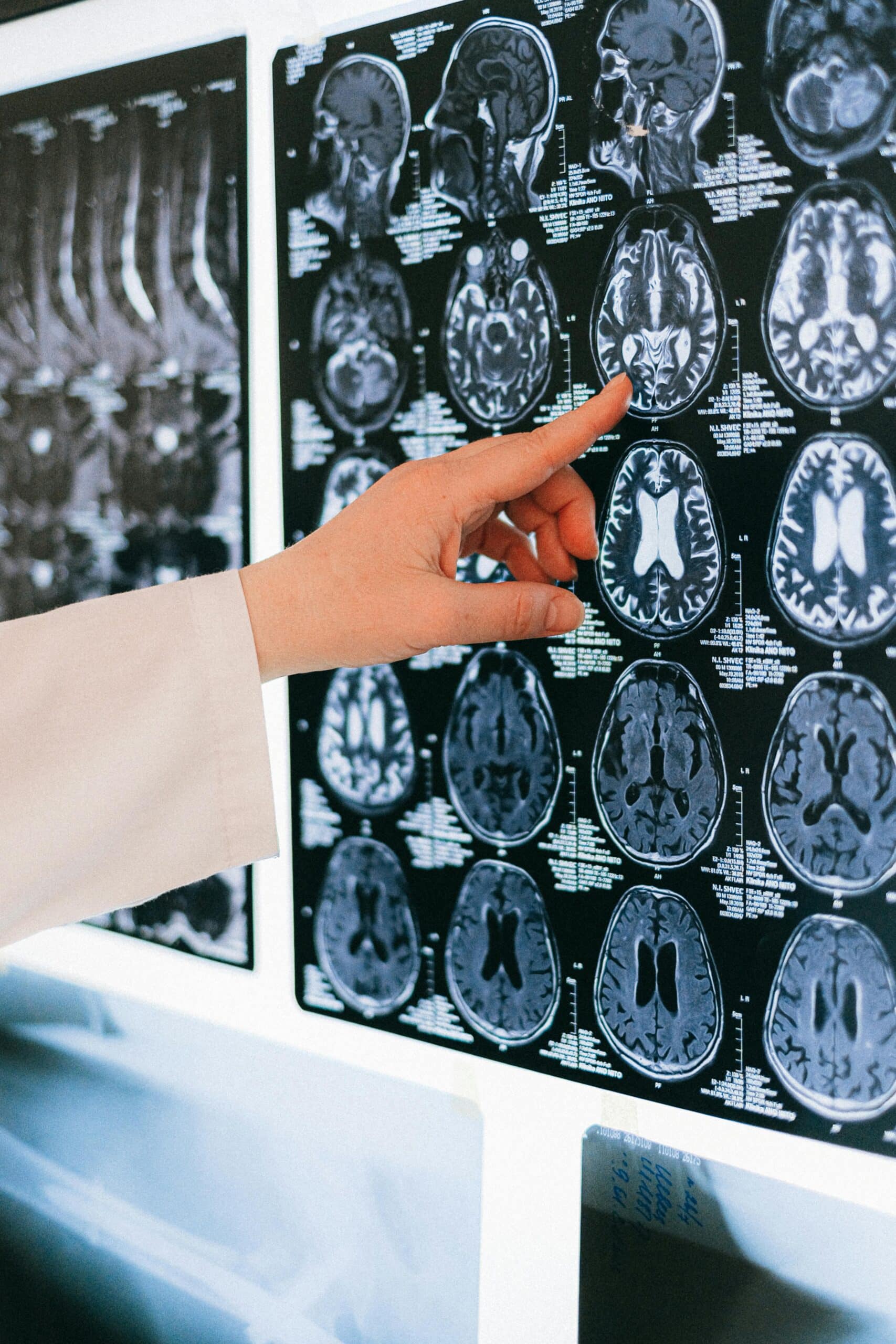April is Parkinson’s Awareness Month, a time dedicated to educating the public about Parkinson’s disease, its impact, and the resources available to improve quality of life. If you or a loved one have been diagnosed with Parkinson’s, the Physical, Occupational, Audiology and Speech-Language Therapy teams at Hackensack Meridian Mountainside Medical Center are here to help you navigate the challenges of this condition and enhance your daily functioning.
What is Parkinson’s Disease?
Parkinson’s disease is a condition that gets worse over time and mainly affects how you move. It happens when brain cells that make dopamine, a chemical that helps control movement, start to break down. As dopamine levels decrease, individuals may experience symptoms such as tremors, stiffness, slowed movement, and balance difficulties. Over time, Parkinson’s can also impact speech, cognition, and daily activities.[i]
Who is at Risk?
While the exact cause of Parkinson’s disease remains unknown, several risk factors have been identified:
- Age: Most cases develop after the age of 60, though early-onset Parkinson’s can occur in younger individuals.
- Genetics: A family history of Parkinson’s may increase the risk, though most cases are not inherited.
- Environmental Factors: Exposure to certain toxins, such as pesticides or industrial chemicals, has been linked to a higher risk of developing Parkinson’s.
- Gender: Men are more likely to develop Parkinson’s than women.[ii]
How is Parkinson’s Treated?
While there is no cure for Parkinson’s disease, a combination of medical and therapeutic interventions can help manage symptoms and improve quality of life. Treatment options include:
- Medications: Dopamine replacement therapies can help alleviate movement-related symptoms.
- Surgical Options: In some cases, deep brain stimulation (DBS) can be used to regulate abnormal brain activity.
- Physical & Occupational Therapy: Exercise and rehabilitation therapies are essential in maintaining mobility, independence, and overall function. Exercise and physical activity can improve motor function, balance and strength.
- Speech Language Pathology: Using speech therapy techniques can help improve voice quality, enhance swallowing functions, and address cognitive-communication challenges.
Recovery and Management with Therapy
Physical, occupational, and speech-language therapy play a crucial role in managing Parkinson’s symptoms and helping individuals maintain their daily activities. Our dedicated team at Mountainside Medical Center provides personalized programs to:
- Improve balance and coordination
- Enhance mobility and flexibility
- Strengthen muscles to support posture and movement
- Develop strategies for daily tasks, such as dressing, eating, speaking, and writing
Parkinson’s Disease Program
Making an accurate diagnosis of Parkinson’s disease can be difficult, but at Mountainside Medical Center, there are a variety of tools to help identify the right symptoms. One of the tools includes the DaTscan. This scan uses small amounts of a radioactive drug to light up dopamine transporters in the brain. DaTscans can be used to accurately differentiate Parkinson’s disease from other movement disorders.
The following therapies may be helpful for managing Parkinson’s, and are available at Mountainside Medical Center:
- Audiology — Parkinson’s disease can affect your ability to hear. Mountainside Medical Center offers hearing evaluations to identify how to manage your communication skills in the presence of Parkinson’s and potential hearing loss.
- Dysphagia and swallowing treatments — Clinical swallow evaluations and modified barium swallow tests are performed for patients with swallowing issues. Some therapeutic treatments include diet modification and exercises that target the mouth and throat muscles to improve swallowing abilities.
- Lee Silverman Voice Treatment (LSVT)-BIG — This high-intensity program is held four times a week and aims to improve posture and gait. LSVT-BIG helps to increase the range of your movements and improve functional mobility, coordination, and balance.
- LSVT LOUD — This program trains patients to use their voice at a more normal level of loudness. Our two LSVT-LOUD specialists help patients recalibrate their perception, so they know how loud or soft their voice sounds to others.
- Speak Out! — Using educational resources, individual speech therapy and ongoing group sessions, this program helps prevent Parkinson’s patients from developing a weakened voice.
- Traditional physical therapy — Held one to three times per week, this program is tailored to each patient’s needs. Treatments may include balance and strength training, as well as coordination, strength, and flexibility exercises.
- Traditional speech therapy — For patients who are unable to perform the intensive exercises in the LSVT-LOUD and Speak Out programs, we offer traditional speech therapy.
If you or a loved one is living with Parkinson’s, don’t navigate this journey alone. Reach out to our therapy team to find out how we can help you stay active and independent. Schedule an appointment today!
[i] https://www.webmd.com/parkinsons-disease/parkinsons-disease-overview
[ii] https://www.ninds.nih.gov/health-information/disorders/parkinsons-disease#toc-who-is-more-likely-to-get-parkinson-s-disease-

